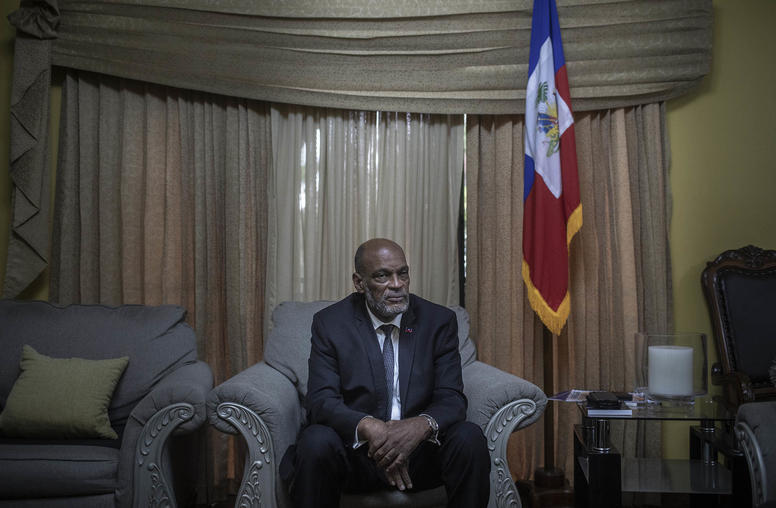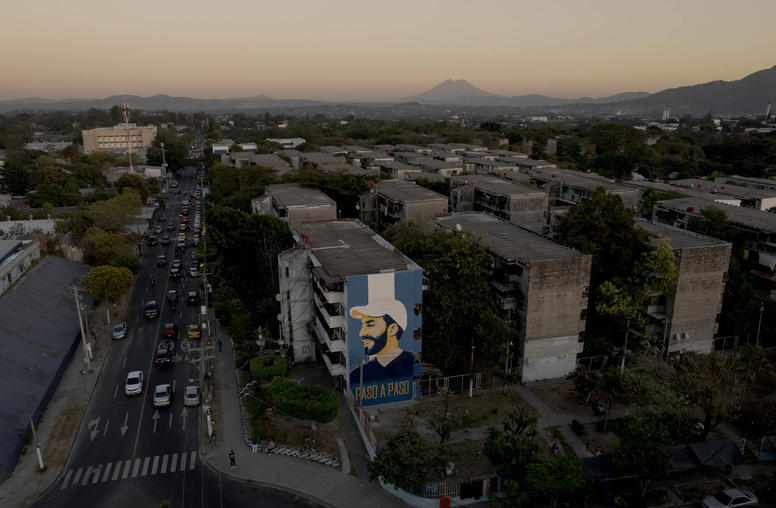Publications
Articles, publications, books, tools and multimedia features from the U.S. Institute of Peace provide the latest news, analysis, research findings, practitioner guides and reports, all related to the conflict zones and issues that are at the center of the Institute’s work to prevent and reduce violent conflict.
Question And Answer
Amid a Changing Global Order, NATO Looks East

Ce qu'un gouvernement de transition en Haïti aura besoin pour réussir
Après des semaines de consultations, et au milieu d'une quasi-rupture totale de l'ordre et de la loi en Haïti, un effort dirigé par la Communauté caribéenne (CARICOM) pour créer un nouveau conseil de gouvernance de transition pourrait être sur le point d'être achevé. La mise en place du conseil permettrait l'entrée d'une force de sécurité multinationale qui pourrait ensuite se joindre à la police nationale haïtienne pour rétablir l'ordre. Certains ont suggéré l'inclusion de "facilitateurs" pour la nouvelle force de sécurité - soutien aérien, drones, renseignement. Mais pour gagner la confiance du peuple haïtien, le nouveau conseil de gouvernance aura besoin de ses propres "facilitateurs" populaires, d'un moyen systématique d'inclure de nombreux autres secteurs de la société haïtienne qui sont actuellement ignorés ou délibérément exclus de la gouvernance.

What a Transitional Government in Haiti will Require to Succeed
After weeks of consultations, and amidst a near total breakdown of law and order in Haiti, a Caribbean Community (CARICOM)-led effort to create a new transitional governing council may be nearing completion. The council’s establishment would allow for the entry of a multinational security force that would then be able to join with the Haitian National Police and restore order. Some have suggested the inclusion of “enablers” for the new security force — air support, drones, intelligence. But to gain the trust of the Haitian people, the new governing council will need its own popular “enablers,” a systematic way to include many more sectors of Haitian society that are currently ignored or deliberately excluded from governance.

Keith Mines on the Collapse of Haiti’s Governance
With the governing structure now collapsing, Haitian gangs “have the country in a stranglehold,” says USIP’s Keith Mines, and that the best path to re-establish stability is “to form a new transitional government that would be more inclusive, that would have better connections to the Haitian people.”

How to Avert a Gang Takeover of Haiti
Policymakers across the Western Hemisphere were shocked this weekend by news of a concerted effort by a coalition of gangs to attack Haiti’s key infrastructure, block the capital’s airport and prevent Prime Minister Ariel Henry from returning from a trip abroad. After all, the analysis went, Henry’s position seemed cemented as the deadline of February 7 — when he was supposed to hand over power to an elected government — passed with no real challenges to his rule. Now, absent an inclusive transitional arrangement that can effectively govern, the possibility of total collapse and anarchy in Haiti is ever more real.

El Salvador’s Bukele: From ‘World’s Coolest Dictator’ to ‘Philosopher King’
El Salvador’s president, Nayib Bukele, celebrated a landslide electoral victory on Feb. 4, far outstripping his nearest competitor. “The opposition was pulverized,” Bukele told jubilant crowds outside the National Palace on election night. In reply to critics who warn that El Salvador is moving toward authoritarianism, he proclaimed, “we are not substituting democracy because El Salvador has never had democracy.” The leader who once called himself the “world’s coolest dictator” now boasts of being his country’s “philosopher king.”

Keith Mines on Haiti’s Security and Governance Crises
Haiti’s slow decline has led the country to the brink of collapse. And while the international community has offered to help, “there’s just a lot of pieces … that haven’t come together yet,” says USIP’s Keith Mines, adding: “It probably will take a stronger lead by the United States” to restore security and governance.

It’s Not Too Early to Talk about Plan Ecuador
Since his assumption of Ecuador’s presidency on November 23, 2023, Daniel Noboa has faced a surge in violence that culminated the week of January 8th with prison riots, the abduction of police officers, car bombings, looting and the dramatic kidnapping of TV presenters during a live broadcast. Noboa fought back by announcing a state of emergency, opening the way for the armed forces to confront 22 gangs classified as “terrorist organizations.” It is not too early to consider a surge in international support for Ecuador, such as a more modest and community-centered version of the highly successful Plan Colombia, given the strength of transnational and national criminal organizations.

No es demasiado pronto para hablar sobre un Plan Ecuador
Desde que asumió la presidencia del Ecuador el pasado 23 de noviembre de 2023, Daniel Noboa ha enfrentado una escalada de violencia que culminó la semana del 8 de enero con disturbios en cárceles, retención de policías, atentados con bombas, saqueos y el dramático secuestro de presentadores de televisión durante una transmisión en vivo. Noboa respondió imponiendo un estado de emergencia, abriendo así el camino para que las Fuerzas Armadas enfrenten a 22 pandillas clasificadas como "organizaciones terroristas". Dado el poder de estas organizaciones criminales transnacionales y nacionales, no es demasiado pronto para considerar un aumento en el apoyo internacional a Ecuador, mediante una versión más modesta del Plan Colombia orientada hacia las comunidades.

A Preview of 2024 Elections Throughout Latin America
Anti-incumbent sentiment has gripped much of Latin America in recent years, swinging electoral results leftward in Mexico, Colombia, Honduras and Brazil, upending the corrupt coalitions that have long ruled Guatemala, and handing the presidency of Argentina to a self-proclaimed “anarcho-capitalist.” But 2024 may prove to be a good year for establishment politicians. In the five countries with elections on the calendar — El Salvador, Panama, Dominican Republic, Uruguay and Mexico — insider candidates are polling ahead, at least so far.

Un avance sobre las elecciones de 2024 en América Latina
En los últimos años, el sentimiento anti-oficialista se ha apoderado de la mayoría de América Latina, moviendo el péndulo electoral hacia la izquierda en México, Colombia, Honduras y Brasil, trastocando las coaliciones corruptas que durante mucho tiempo han gobernado en Guatemala y entregando la presidencia de Argentina a un autoproclamado "anarcocapitalista". Sin embargo, el 2024 podría resultar ser un buen año para los candidatos del oficialismo. En los cinco países con elecciones este año —El Salvador, Panamá, República Dominicana, Uruguay y México—, los aspirantes de los partidos gobernantes, al menos hasta ahora, encabezan las encuestas.